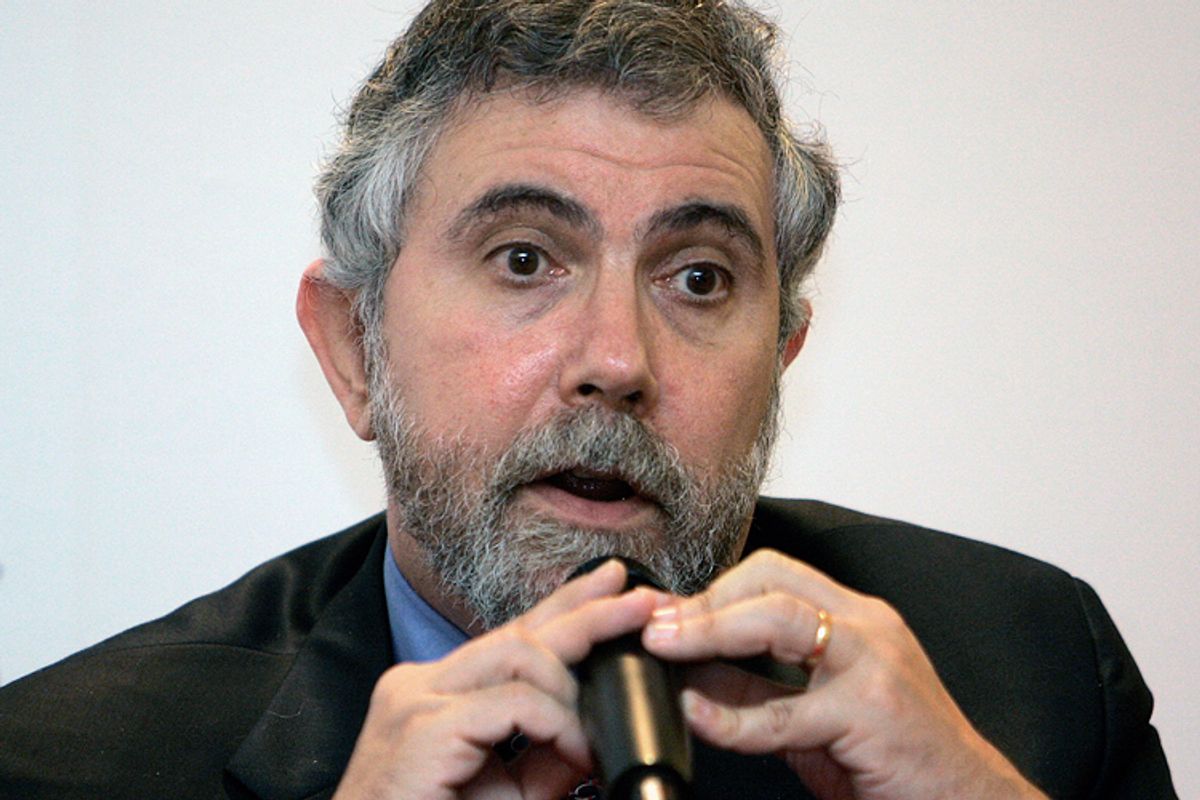In his latest column for the New York Times, award-winning economist Paul Krugman criticizes policymakers in Germany for their refusal to "face up to the nature of our economic problems."
Explaining how Germany's maintenance of huge trade surpluses hurts the global economy, Krugman writes, "It’s simply arithmetic: Since southern Europe has been forced to end its deficits while Germany hasn’t reduced its surplus, Europe as a whole is running large trade surpluses, helping to keep the world economy depressed."
Krugman goes on to chide German officials for their stubborn defensiveness in the face of outside criticism, arguing that Germany "isn't blameless" when it comes to the Eurozone's continued economic lethargy.
More from Paul Krugman at the New York Times:
[Germany] shares a currency with its neighbors, greatly benefiting German exporters, who get to price their goods in a weak euro instead of what would surely have been a soaring Deutsche mark. Yet Germany has failed to deliver on its side of the bargain: To avoid a European depression, it needed to spend more as its neighbors were forced to spend less, and it hasn’t done that.
German officials won’t, of course, accept any of this. They consider their country a shining role model, to be emulated by all, and the awkward fact that we can’t all run gigantic trade surpluses simply doesn’t register.
And the thing is, it’s not just the Germans. Germany’s trade surplus is damaging for the same reason cutting food stamps and unemployment benefits in America destroys jobs — and Republican politicians are about as receptive as German officials to anyone who tries to point out their error. In the sixth year of a global economic crisis whose essence is that there isn’t enough spending, many policy makers still don’t get it. And it looks as if they never will.

Shares